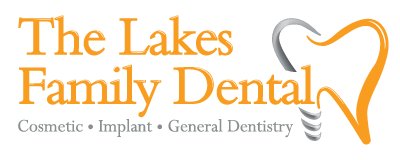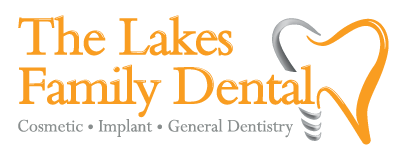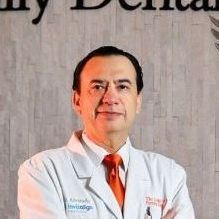Relief from Dental Fear with Sedation Dentistry
If you are feeling stressed or anxious about that upcoming dental visit, talk to Dr. Jeffrey Alvarado about sedation dentistry options available at our practice. We offer a number of sedation dentistry options for patients that need relief from dental anxiety or fear, including pain-free anesthesia with the DentalVibe® solution. Our goal is to make every visit as comfortable as possible and we may recommend some form of sedation as part of your treatment plan.
Eliminate Dental Anxiety
Many people understand the necessity and importance of regular dental care… But that doesn’t mean that dental stress and anxiety don’t occasionally rear their heads!
The sad truth is, plenty of people suffer from anxiety regarding going to the dentist or having dental procedures done.
- 15% of Americans suffer from dental anxiety
- A whopping 50% of Americans do not keep up with their regular dental visits
This is why it's important for dentists to offer sedation dentistry through their practices.
It helps them give their patients the treatment they need while keeping everyone:
- Safe and comfortable
- Free of dental anxiety and stress
At The Lakes Family Dental, Dr. Jeffrey Alvarado and the rest of the dental team offer several sedation dentistry options, including pain-free anesthesia with the help of the patented DentalVibe solution.
What is DentalVibe for Pain-Free Anesthesia?
DentalVibe is a pain-free anesthesia system that uses vibration technology to deliver anesthetic with no needles!
This allows for QUICK AND EASY sedation in almost all cases, making it popular among:
- Children
- Patients with anxiety
- Patients with a fear of needles
It works by applying light vibration to the oral tissues around where the anesthesia is applied. The simultaneous vibration and injection are great stress and anxiety relievers, because:
- The vibration reaches the brain first
- This blocks the brain from feeling the injection!
Most patients who experience DentalVibe don't even know when the injection occurs!
This makes it especially ideal for children, who typically experience more dental fear than adults.
Nitrous Oxide
If you have a hard time getting numb, nitrous oxide may be the best type of sedation dentistry for you. Also known as laughing gas, nitrous oxide can help you feel more relaxed within minutes of inhaling the gas and we control the level of sedation by releasing more or less gas. You will return back to normal within minutes after the gas is stopped so you may even be able to drive yourself home after treatment.
Oral Sedation
This form of Sedation Dentistry involves:
- Anti-anxiety medication, taken before your procedure
- The medication will keep you calmed and relax during treatment
You'll be sleepy and your inhibitions will be lowered, but you won't feel "under the influence" at all!
You're just relaxed enough to take on some more sedation with nitrous oxide if needed.
It's completely safe during dental treatment because we never want you unconscious or asleep for any reason!
Just remember, you may feel a little drowsy after your procedure, so have someone prepared to drive you home.
In Conclusion...
For those that are crippled by:
- Fear
- Stress
- Anxiety
When it comes to going to the dentist, sedation dentistry is the answer.
You’ll be able to relax and receive dental treatment without any fear or discomfort.
This allows for complete comfort during your visit so you can get back on track with regular check-ups and keep up good oral hygiene!
Learn more about the DentalVibe® system and sedation dentistry options by scheduling your appointment with Dr. Alvarado today!
Can't Call Us Now?
Sedation Page
Sedation Dentistry Frequently Asked Questions
For many people, the thought of going to the dentist causes some level of anxiety. Whether it's due to past experiences, sensitive teeth, or fear of pain, dental visits can feel overwhelming. That’s where sedation dentistry may be helpful. If you’re looking into sedation dentistry in Edinburg, TX, here are some of the most common questions other patients ask to help you better understand what to expect.
What is sedation dentistry?
Sedation dentistry refers to the use of medication to help patients relax during dental procedures. It's often used for individuals who experience dental anxiety, have difficulty sitting still, or are undergoing longer or more complex treatments. While the goal isn’t always to put a patient to sleep, sedation can create a calming effect that helps ease stress and makes the visit feel more manageable.
Different levels of sedation exist, from mild relaxation to deeper states of calm. The type used can depend on the patient's needs, health history, and the nature of the dental work being done. Sedation dentistry is commonly combined with local anesthesia to ensure comfort during treatment.
Who might benefit from sedation dentistry?
Sedation dentistry can be helpful for a wide range of patients. Some common reasons people consider it include:
- Fear or anxiety about dental visits
- A sensitive gag reflex
- Difficulty getting numb with local anesthesia alone
- Complex or lengthy procedures
- Trouble sitting still for extended periods
- Past traumatic dental experiences
Patients with medical or behavioral conditions that make traditional dental visits difficult may also inquire about sedation options. However, whether sedation is appropriate depends on individual health factors and a thorough evaluation by a dental professional.
What types of sedation are commonly used in dentistry?
There are several types of sedation used in dental settings, each offering a different level of relaxation:
- Nitrous oxide (commonly called “laughing gas”): A mild inhaled sedative that wears off quickly and allows you to drive yourself home after treatment.
- Oral sedation: Medication taken in pill form before the appointment to help reduce anxiety and induce calm.
- IV sedation: Delivered intravenously for a deeper level of sedation. This is often used in more advanced or lengthy procedures.
- General anesthesia: Typically used in hospital settings or special cases requiring the patient to be fully unconscious.
The type of sedation used depends on several factors, including your health, anxiety level, and the dental procedure involved. Your provider will help determine what’s most appropriate for you.
Will I be awake during sedation dentistry?
That depends on the type of sedation used. With mild forms like nitrous oxide or oral sedation, you’re usually awake but feel more relaxed or less aware of the surroundings. Some people describe the feeling as drowsy or slightly detached but still responsive.
Deeper levels of sedation, such as IV sedation or general anesthesia, may put you into a sleep-like state. In those cases, you might not remember the procedure afterward. However, sedation doesn’t always mean you're completely asleep since it’s more about helping you stay calm and comfortable.
Is sedation dentistry safe?
Sedation dentistry is widely used and considered safe when administered by trained dental professionals. Like any medical treatment, there are guidelines and precautions in place to ensure patient safety. Dental teams typically review your full medical history, current medications, and any known allergies to make sure sedation is appropriate for you.
Monitoring tools are also used throughout the procedure to track your breathing, heart rate, and oxygen levels. These safety measures help ensure that the sedation remains effective without complications. That said, it’s always a good idea to ask your dental provider any questions you may have about risks or preparation.
How should I prepare for a sedation dentistry appointment?
Preparation can vary depending on the type of sedation you’re receiving.
For example:
- With nitrous oxide, little to no preparation is needed, and you may be able to return to normal activities right after your visit.
- With oral or IV sedation, you may be asked not to eat or drink for several hours beforehand.
- You’ll likely need a trusted adult to drive you to and from your appointment if moderate or deep sedation is being used.
- Comfortable clothing is recommended, and the dental office may give you specific instructions to follow ahead of time.
- Always follow the guidelines provided by your dentist to ensure the safest experience possible.
What does recovery from sedation feel like?
Recovery time depends on the type of sedation used. With nitrous oxide, the effects usually wear off within minutes, and most people feel normal soon after the procedure. With oral or IV sedation, grogginess or drowsiness may last a few hours after the appointment.
After deeper sedation, patients are typically advised to rest, avoid operating machinery, and refrain from making important decisions for the remainder of the day. You might feel sleepy or a little “foggy,” which is completely normal. It’s best to plan a light schedule following the procedure and allow time to fully recover.
How do I know if sedation dentistry is right for me?
The best way to find out if sedation dentistry is a good option is to talk with your dental provider during a consultation. They’ll evaluate your health, listen to your concerns, and explain what sedation methods are available.
If you’re someone who avoids dental appointments due to anxiety or if you’ve had negative experiences in the past, it’s worth asking about sedation options. It could make the difference between postponing care and getting the treatment you need in a more relaxed and manageable way.
Sedation may also be worth discussing if you’ve experienced difficulties with dental procedures in the past, such as:
- Trouble getting numb with local anesthetic alone
- A sensitive gag reflex that interferes with treatment
- Physical discomfort from sitting in the dental chair for long periods
- A history of avoiding dental visits entirely due to stress or fear
These are all concerns that can be addressed during a consultation. Your provider will also review any medications you're taking and ask about your medical history to make sure sedation is used safely.
Ultimately, sedation dentistry is about creating a more comfortable and personalized experience. It won’t be necessary for everyone, but for those who need it, it can make a big difference in their willingness to follow through with dental care and maintain long-term oral health.




